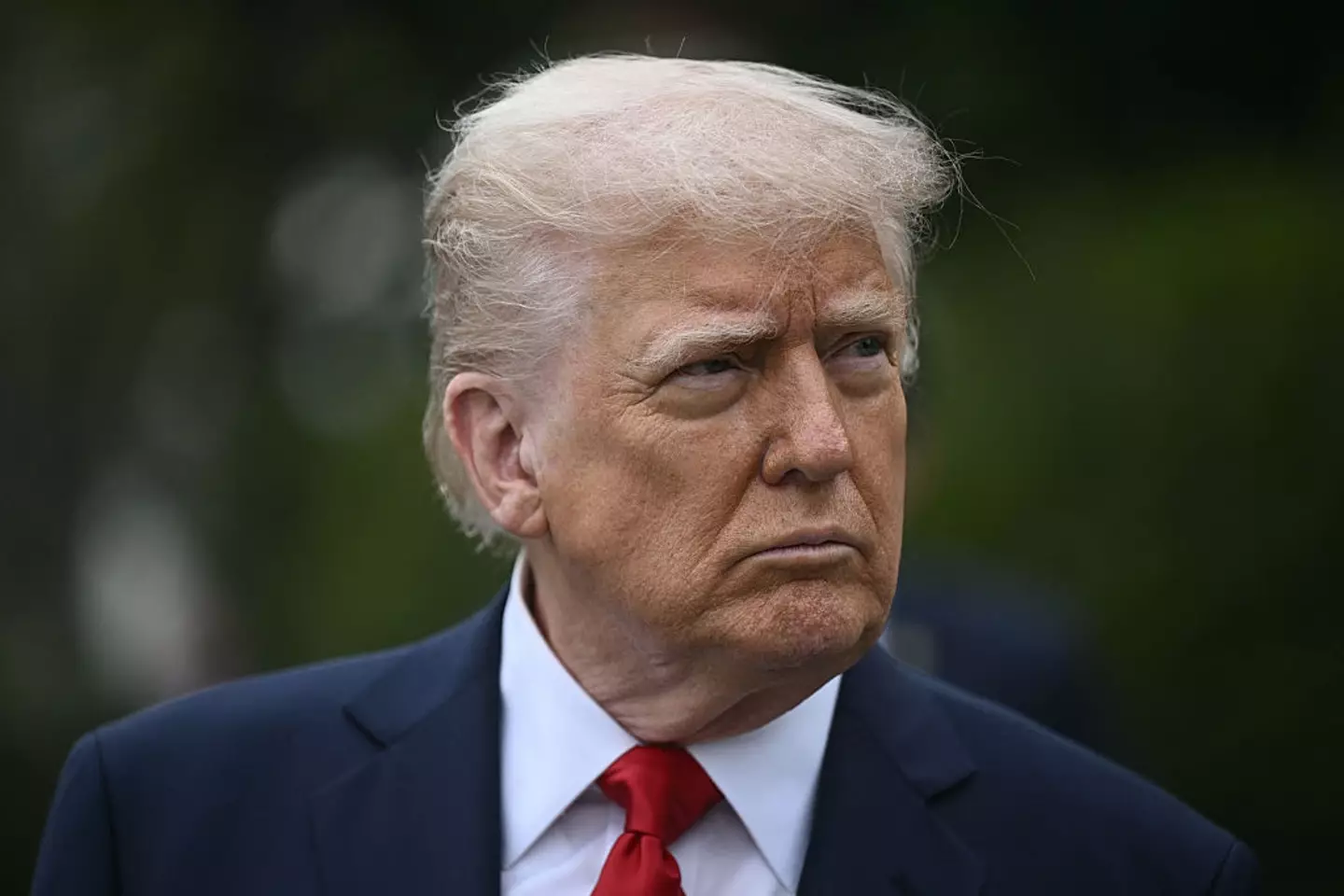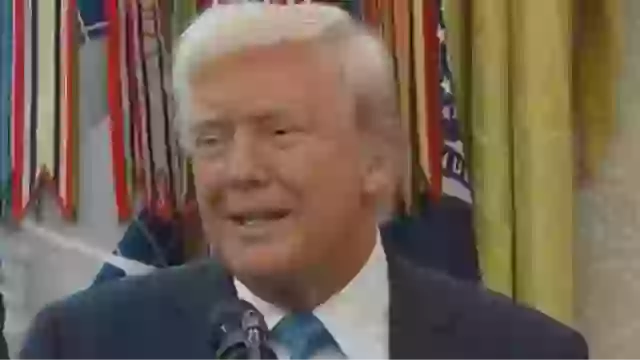Donald Trump offered a somewhat unexpected response when a reporter questioned him about the ongoing trade war with China.
Since returning to the White House for his second term in January, Trump has aggressively pushed tariffs and signed a series of executive orders.
Although several countries have criticized Trump’s controversial tariff policies, the escalating trade war with China has drawn particular attention.
On April 2, Trump imposed a new wave of retaliatory tariffs on trading partners around the world.
Goods from China, already subject to a 20 percent tariff, saw an additional 34 percent hike—bringing the total to 54 percent—on what the administration dubbed ‘Liberation Day.’
China swiftly responded with its own countermeasures, slapping 15 percent tariffs on U.S. farm products, 10 percent on crude oil and agricultural machinery, and 34 percent on all U.S. goods.

President Trump has been hard on the global tariffs (BRENDAN SMIALOWSKI/AFP via Getty Images)
The trade war escalated dramatically when Trump retaliated with an 84 percent levy, pushing the total tariff on Chinese imports to a staggering 104 percent.
China quickly fired back, raising its retaliatory tariffs on U.S. goods to 84 percent—but the tit-for-tat didn’t end there.
Trump then hiked tariffs on Chinese goods to 145 percent, and later to 245 percent, while temporarily pausing tariff increases on other countries for 90 days. In response, China raised tariffs on all U.S. goods to 125 percent and began cutting exports of rare earth minerals.
Now, the 47th president has hinted that a major policy reversal could be in the works as the trade war drags on.
Despite the recent spike in tensions, Trump told reporters he maintains a “very good relationship” with Chinese President Xi Jinping.
When pressed on whether he planned to take a hardline approach with China over a potential deal, Trump was quick to brush off the suggestion.
“No, no, we’re going to be very friendly. They’ll be very friendly too, and we’ll see how it goes. But in the end, they’ll have to make a deal, because without one, they won’t be able to do business in the United States—and we want them to be part of it.”
“I think we’re going to live together very happily and ideally work together, so I think it’s going to work out very well.”



